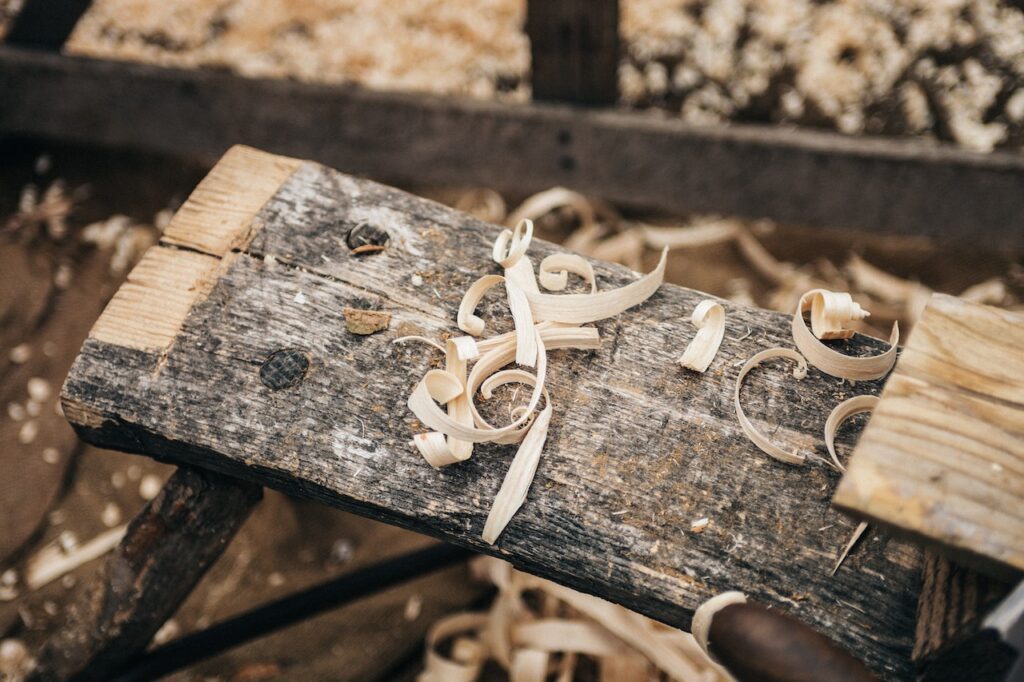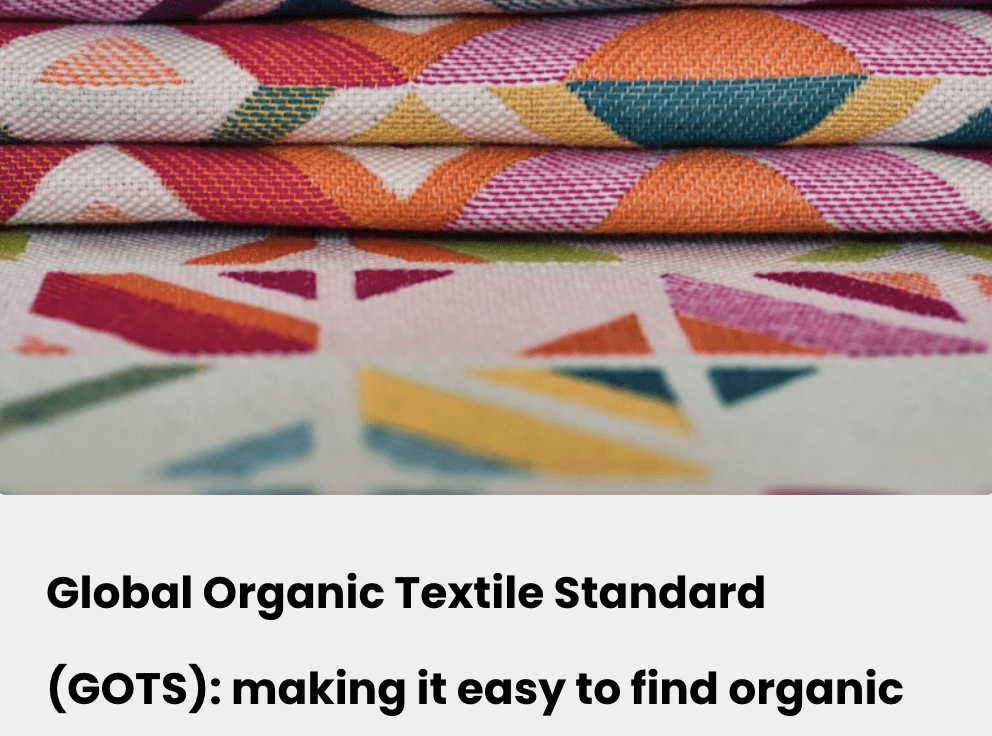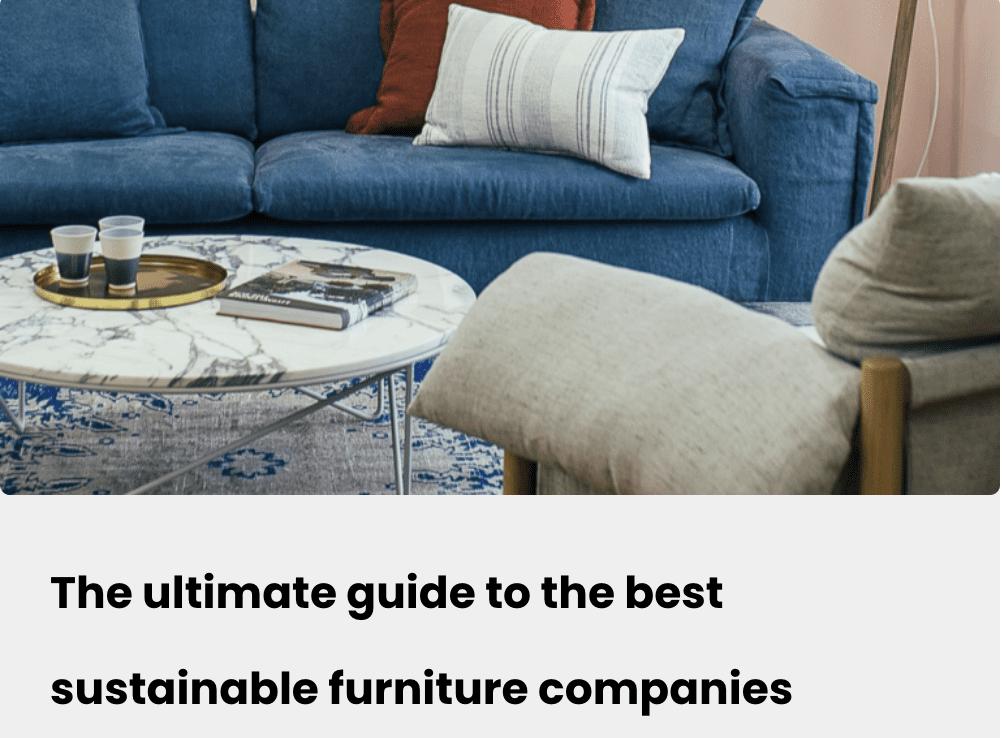In this post, we explore one of the most comprehensive sustainable certifications: Cradle to Cradle® Certification.
The Home Green is reader-supported and may receive a commission if you decide to make a purchase through a posted link, at no cost to you.
“We still do not know one-thousandth of one percent of what nature has revealed to us.”
– Albert Einstein
As humans, we work hard to improve upon the things we think nature gets wrong. What we probably don't work hard enough at, though, is learning from Mother Nature and the millions of years of wisdom she could share. The concept of Cradle to Cradle® is one that embraces what nature perfected long ago.
The goal of Cradle to Cradle® inspired products is to mimic the natural life cycles of nature. Specifically that as the life cycle of one organism ends, it becomes a building block for a new one. In our man-made world, when we’re done with a product, more often than not we bury it in the ground. (it sounds so odd when you say it like that doesn’t it?)
What if, instead of shipping the things we no longer need to a landfill, we made them into something else? Or better yet, what if manufacturers accept products back at the end of their usable life to make new products? It’s a process that’s easier said than done but also one that many would argue is crucial for our collective future.
This concept of product circularity is explored extensively in the foundational book Cradle to Cradle: Remaking the Way We Make Things by William McDonough and Michael Braungart. They are also the founders of the Cradle to Cradle Products Innovation Institute which is responsible for Cradle to Cradle® Certification.
What is Cradle to Cradle®?
Cradle to Cradle® (often abbreviated as C2C) is a framework that promotes the creation of products and systems that eliminate the concept of waste. McDonough and Braungart introduced the idea that products should be designed with the goal of being continually recycled and regenerated, rather than disposed of. The framework emphasizes the following key principles:
- Waste Equals Food: In nature, waste from one organism becomes a valuable nutrient for another. Cradle to Cradle® design seeks to create products that can be safely and fully recycled or biodegraded, serving as “nutrients” for other processes.
- Use of Safe and Healthy Materials: Products should be made from materials that are safe for human health and the environment. The design process considers the entire lifecycle of materials, from origin to disposal.
- Renewable Energy: The use of renewable energy sources is encouraged to power manufacturing processes, reducing reliance on fossil fuels and minimizing carbon emissions.
- Water Stewardship: Efforts are made to minimize water consumption and pollution throughout the product's lifecycle.
- Social Responsibility: Cradle to Cradle® design also encompasses social and ethical considerations, including fair labor practices and social well-being.
The Cradle to Cradle® philosophy contrasts with the traditional “cradle to grave” approach, where products are made, used, and then discarded as waste. Instead, Cradle to Cradle® envisions a circular economy, where materials and products are perpetually cycled and regenerated, reducing the need for new resources and minimizing environmental impact.
Cradle to Cradle Certified® Products
When you see the Cradle to Cradle Certified® logo you know that that product has been approved by the Cradle to Cradle Products Innovation Institute as one that has met strict circularity standards. Organizations and manufacturers seeking Cradle to Cradle® Certification must undergo a comprehensive assessment by accredited assessors to determine whether their products meet the required standards. The areas that are evaluated for Cradle to Cradle® Certification include:
- Material Health: Assessing the safety and impact of the materials used in the product on human health and the environment. This involves examining the chemical composition of the materials and their potential effects throughout their lifecycle.
- Material Reutilization: Evaluating whether the materials in the product can be recycled or safely returned to nature at the end of their useful life, without compromising their quality.
- Renewable Energy and Carbon Management: Assessing the product's energy use and carbon footprint, aiming to encourage the use of renewable energy sources and reduce greenhouse gas emissions.
- Water Stewardship: Evaluating the product's water usage and its impact on water quality and availability throughout its lifecycle.
- Social Fairness: Considering the social and ethical aspects of the product's production, including labor conditions and fair practices.
Once a product has been reviewed according to these areas, it can qualify for 5 different levels of Cradle to Cradle® Certification: Basic, Bronze, Silver, Gold, and Platinum. A product that receives the certification demonstrates a commitment to sustainable practices, responsible resource management, and a positive impact on human health and the environment. Cradle to Cradle® Certification has been adopted by various companies and industries as part of their sustainability initiatives, driving innovation and promoting more sustainable products and practices.


Cradle to Cradle Certified® furniture companies
- Herman Miller: Herman Miller, a well-known furniture manufacturer, has been a pioneer in sustainable design and has received Cradle to Cradle® Certification for some of their products. They are known for their ergonomic office chairs and innovative designs.
- Steelcase: Another major player in the furniture industry, Steelcase has also pursued Cradle to Cradle® Certification for certain products. They offer a range of office furniture and workspace solutions.
- Interface: While primarily known for carpet tiles and flooring solutions, Interface has expanded its sustainability efforts and has received Cradle to Cradle® Certification for some of its products.
- Shaw Industries: Shaw Industries, a leading carpet and flooring manufacturer, has received Cradle to Cradle® Certification for some of its carpet products.
- Knoll: Knoll is a design-driven furniture manufacturer that has focused on incorporating sustainability into its products and has received Cradle to Cradle® Certification for certain items.
- Designtex: Designtex, a company specializing in textiles and wallcoverings, has pursued Cradle to Cradle Certification for some of its products.
Cradle to Cradle Certified® home goods companies
- Method: Method is a company known for producing environmentally friendly cleaning and home care products. They have received Cradle to Cradle® Certification for some of their cleaning products.
- Ecover: Ecover is another company that specializes in eco-friendly cleaning and household products. They have pursued Cradle to Cradle® Certification for certain items in their product line.
- Bio-Lutions: Bio-Lutions is a company that produces sustainable and compostable packaging and disposable tableware. They have earned Cradle to Cradle® Certification for their products.
- Purcell Timber Frame Homes: This company focuses on sustainable and energy-efficient timber frame homes. They have achieved Cradle to Cradle® Certification for some of their building materials and construction practices.


Cradle to Cradle Certified® flooring companies
- Interface: Interface is a global leader in modular carpet and flooring solutions. They are well-known for their sustainable practices and have received Cradle to Cradle® Certification for many of their carpet tile products.
- Tarkett: Tarkett is a flooring manufacturer that produces a wide range of flooring solutions, including vinyl, linoleum, and wood flooring. They have achieved Cradle to Cradle® Certification for some of their flooring products.
- Desso (a Tarkett Company): Desso, now part of the Tarkett Group, focuses on carpet and flooring solutions. They have also earned Cradle to Cradle® Certification for certain products in their line.
- Shaw Industries: Shaw Industries, a leading carpet and flooring manufacturer, has pursued Cradle to Cradle® Certification for some of its carpet products.
- Forbo Flooring: Forbo is known for its linoleum, vinyl, and carpet tiles. They have received Cradle to Cradle® Certification for certain products in their flooring range.
- Mohawk Industries: Mohawk is a flooring company that produces carpets, rugs, and hardwood flooring. They have achieved Cradle to Cradle® Certification for various flooring products.®
Embracing Cradle to Cradle® philosophies feels like the future of so many industries and we look forward to adding more companies to our lists in the coming years. Please reach out if you discover one we have missed, we'll be excited to learn more!
Other articles you may enjoy
Free tips and inspiration in your inbox
Enter your email address below to receive the latest news from The Home Green.




